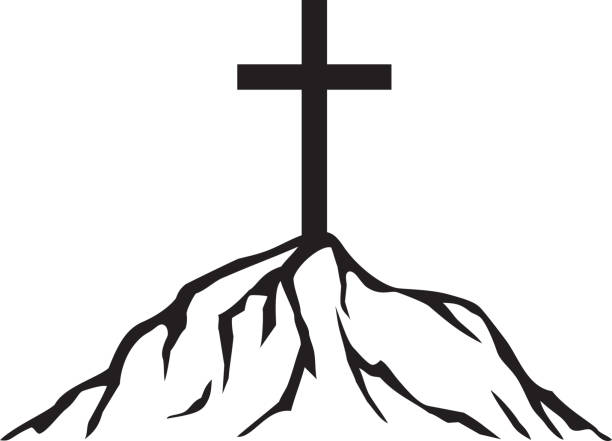We like to imagine Church teachings as monolithic and unchanging, and yet from the very beginning there is dynamism to beliefs and discipleship. The first believers in the Jewish church of Jerusalem were still attending the synagogue services and worshipping at the temple. The expulsion of Jewish Christians from the synagogues and the destruction of the temple in 70 AD by the Romans would insure that Christianity would not remain a mere sect of Judaism. The rite of initiation into the faith would no longer be Jewish circumcision but Christian baptism. The Sunday Observance or the Lord’s Day would supplant the Hebrew Sabbath. Similarly, the new economy of images would make itself felt in the abolition of the Decalogue prohibition against fashioning graven images.
The pertinent doctrines that have experienced a definite shift make for a significant list:
01. Given that the Bible and the Church permitted slavery for many centuries, how is it that the Church condemns such bondage and human trafficking today?
02. Given that even the Papal States enforced capital punishment against murderers and highway bandits, how is it that today the Church demands the universal and absolute abolition of the death penalty? Indeed, what becomes of arguments that such punishments were necessary to insure the social order, discouraging further crimes and protecting the innocent?
03. Often associated with the death penalty is the so-called just-war theory of the Church. The earliest of Christians were apparently pacifists who were martyred in the thousands by the emperors of pagan Rome. Many of the pagan leaders lamented that if Christianity got the upper hand then they would be easy prey for their enemies. It was after three centuries of spilling their own blood that believers joined the army of Constantine and fought for a lawful status in the empire. Which best signified true Christianity? Today, there are many who argue the rationale for just war as well as for the protection of non-combatants and about the moral problem of nuclear weapons. A related question is what are the ethical parameters for self-defense?
04. What became of the ancient prohibition against usury given modern banking and current interest rates? Was it not this prohibition that steered Jews into banking for Christian Europe and later bred enmity against them?
05. Church exhortations are bias increasingly in favor of modern democracies and opposed to dictatorships; but is this not an about-face in ecclesial support from what was once given to monarchies? What became of the “divine right of kings”?
05. What became of the dictum that “error has no rights”? Why is it that we demand religious liberty today when Catholicism is marginalized or threatened but have historically oppressed others when we were in control? Were actions like the inquisition in Spain due simply to civil agents or did the Church have a part to play? Has the Church always truly taught the sovereignty and right or freedom of conscience?
06. What exactly is the correct meaning of ecumenism and how does it differ from the past militancy of the Church against the errors of Protestants? Have we put aside the use of the anathema at the sinful cost of religious indifferentism? While many argue that ecumenism is merely a church strategy to change the face she shows the world and to cajole Protestants, critics complain that more of substance to true Catholicism is compromised. Which is it?
07. What is the proper understanding of “extra ecclesiam nulla salus,” (outside the Church there is no salvation) when we embrace Protestants as our “separated brethren” and pray with them? Do we have to be Catholic to be saved or not? More importantly, how does this jive with our current attitude toward Jews, Moslems and others?
08. While much is currently made of accompaniment with those in irregular unions, the Church does not have the authority to bless or to sanction adulterous unions. Applications for annulments are now free and this is the recourse for those in invalid and illicit unions. However, it must be asked, does the increased number of affirmative decisions mean greater scrutiny or does it mean a compromise against the indissolubility of the marriage bond?
09. Do recent concessions made in respect to indigenous people betray in any way the missionary mandate of the Church? Can we really compare mud huts and cannibalism with the glories of Western culture? Apologies for mistreatment and abuse are expected; but sometimes it seems that churchmen are ashamed of Christ and regretful about the imposition of the true faith.
10. While disciplines change they take on a whole new level when in reference to the commandments. The invisible God is made visible in Christ and so now graven images are permitted as long as they are not worshipped. The Sabbath transitions to the Lord’s Day but given that today many work and shop on Sundays, what became of the precept against servile work? We hear conflicting answers.
11. The social teachings of the Church seem to be the most mutable. Once Church regulations were heavily weighted toward landowners, especially in favor of church or monastic lands over tenants and those who served their masters— how does that jive with current teachings on land ownership and the rights of workers? Further, that which was once regarded as charity is now deemed a right of social justice, including universal healthcare.
Filed under: Uncategorized |
















































Leave a comment